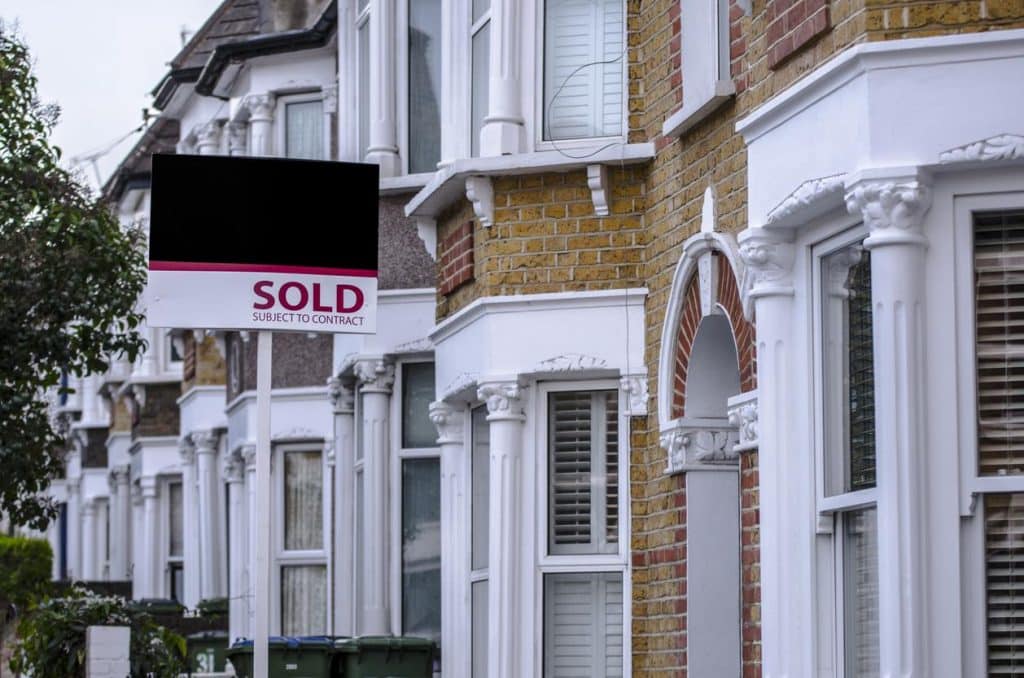A simple guide to Capital Gains Tax
Updated 4th July 2023 | 9 min read Published 4th October 2021

While most taxpayers understand that their income is subject to Income Tax, many are not so certain how to treat a sale of a capital asset, such as a property (that’s not your home) or shares. What’s more, changes to Capital Gains Tax (CGT) reporting over the past few years have further complicated matters, and have left many taxpayers scratching their heads.
You’ve more than likely stumbled upon this guide whilst seeking the answer to the question “what is Capital Gains Tax”. This is most likely because it’s been mentioned to you because you’ve just sold an asset of value or you’re planning to sell it.
Well, you’re in the right place as this easy-to-digest article provides a comprehensive overview of Capital Gains Tax for UK residents, explaining what Capital Gains Tax is, what assets it applies to, how much CGT is, and who should pay it.
Table of Contents
What is Capital Gains Tax?
Simply put, when you sell an item you own, and it has appreciated in value, you may be liable to a tax on the increased value amount. This tax is Capital Gains Tax (CGT).
Whether you will or won’t have to pay UK Capital Gains Tax on the sale of your asset will be determined by several factors which are covered in more detail below.
Who pays Capital Gains Tax?
You may be wondering if CGT is separate from Income Tax. Individuals pay Income Tax on their income (e.g. salary, profits from self-employment, rental income). Capital Gains Tax, on the other hand, applies to gains arising on disposals of chargeable assets. Common examples of chargeable assets include shares, property, and land. CGT can apply both where an asset is sold or where it is gifted.
As UK resident taxpayers are generally subject to Capital Gains Tax on their worldwide gains, sales of overseas chargeable assets (e.g. an overseas rental property) are also subject to UK CGT on disposal.
Note that companies do not pay Capital Gains Tax. Instead, they pay Corporation Tax on their chargeable gains.

Exempt assets
Not every disposal results in a Capital Gains Tax liability. Let’s take a look at some examples of what is exempt from CGT.
One of the most common exemptions is the disposal of the main residence (where the property has been a taxpayer’s main residence throughout ownership, and it has not been used to produce income – e.g. through letting or by being used as a place of business).
Another well-known situation where CGT does not arise is where an individual transfers an asset to their spouse or civil partner. Such transfers are usually considered to take place at nil gain/nil loss.
Certain asset disposals are also CGT exempt – HMRC guidance provides a high-level summary.
How much is Capital Gains Tax?
Capital Gains Tax is applied to the net increase arising on the disposal of an asset. How much CGT you will have to pay depends on several factors which we’ll discuss.
How to calculate CGT
At its simplest, CGT is calculated by taking the amount paid to acquire the asset and deducting this “base cost” from the net disposal proceeds arising on sale.
In practice, this calculation can be more complicated, for instance where an asset is gifted, capital losses are claimed, or where only partial private residence relief is available on a property sale. For more complicated situations it can help to seek the advice of a professional.
Once the net gain has been calculated, the taxpayer should consider how much annual exempt amount (AEA) is available. The AEA is a CGT allowance, meaning no Capital Gains Tax is payable on gains that fall within the AEA.
Now you know how to calculate Capital Gains Tax – if you think that you might have overpaid then check out our guide to claiming back tax.
What is the Capital Gains Tax allowance?
The AEA threshold is currently £12,300 for individuals in 2021 (As of the time of writing Oct 2021). The government has confirmed that this rate will be frozen until 5th April 2026.
What percentage is CGT?
The percentage rate of Capital Gains Tax that applies to a disposal depends on the asset and taxpayer status of the seller.
Where the asset is residential property, the rate of CGT is either 18% or 28%. The 18% rate applies to basic rate taxpayers, while the 28% rate applies to higher and additional rate taxpayers.
Where other chargeable assets are sold, the CGT rates are lowered to 10% or 20% respectively, depending on the taxpayer’s rate band.
Taxpayers can also access specific Capital Gains Tax reliefs where certain conditions are met. Qualifying assets can, for example, be eligible for Business Asset Disposal Relief (formerly Entrepreneurs’ Relief) which applies a 10% CGT rate on qualifying gains up to a lifetime allowance of £1 million.
When do you pay Capital Gains Tax?
The statutory deadline to pay Capital Gains Tax is 31st January following the tax year of the disposal.
If the taxpayer pays tax on account, the capital gain is not considered as part of the POA. Instead, the full balance of CGT is due by 31st January.
Penny disposes of shares in December 2021, realising a net capital gain after the annual exempt amount of £30,000. Penny is a higher rate taxpayer, meaning CGT at 20% (£6,000) is payable. This amount should be paid by 31st January 2023.
The exception to this is where a UK residential property is sold. In such cases, the disposal should generally be reported to HMRC, and the associated CGT paid, within 30 days of the sale completion.

Reporting disposals
If a taxpayer makes a chargeable disposal then, subject to limited exceptions, that disposal should be reported to HMRC.
This is commonly done by filing a self-assessment tax return and completing the Capital Gains Tax supplementary pages.
An individual sells an overseas investment property in January 2022 and has a net capital gain after all reliefs and allowances of £100,000. That disposal should be reported in their 2021-22 self-assessment tax return. The filing deadline is 31st October 2022 if filing a paper return, or 31st January 2023 if filing an online return.
If it is an individual’s first self-assessment tax return, the deadline to register for self-assessment is 5th October following the end of the relevant tax year.
Exceptions to disposals
However, there are some exceptions. For example, a chargeable gain of less than the AEA does not need to be reported.
If a taxpayer is not in self-assessment, or is in self-assessment and would like to pay the CGT due on a disposal sooner, the real-time capital gains tax service can be used to report the gain on a disposal other than UK residential property.
If a taxpayer uses the real-time service, and (aside from the disposal) has no need to file a self-assessment tax return, then by reporting the gain through the real-time service, no tax return should need to be filed. Taxpayers who are in self-assessment should still report the disposal in their tax return, even if they use the real-time service.
Reporting property disposals
There are additional reporting requirements to consider when there is a disposal of UK residential property.

For UK tax residents, the disposal of UK residential property (e.g. a rental property) from 6th April 2020 should be reported to HMRC through the Capital Gains Tax on the UK property account. The deadline to report the disposal, and pay the associated CGT due, is 30 days from the date the sale completes.
There are some exceptions for UK residents. Where a disposal of UK residential property is exempt from CGT (for example, the sale of the main residence) or where the disposal results in no CGT liability through the AEA or use of capital losses, the disposal does not need to be reported through the CGT on UK property account.
However, this is not an optional reporting form; where a taxpayer meets the criteria, the disposal must be reported through the CGT on a UK property account within the deadline.
Where a taxpayer isn’t in self-assessment and (aside from the disposal) has no need to file a self-assessment tax return, then no tax return is needed if the gain is reported through the CGT on a UK property account. However, taxpayers in self-assessment must still report the disposal in their tax return, in addition to reporting the disposal through the CGT on UK property account.
10 key takeaways for CGT
- CGT can apply both where an asset is sold or gifted.
- The AEA (Annual Exempt Amount) is currently £12,300 for individuals in 2021.
- One of the most common CGT exemptions is the disposal of the main residence.
- Capital Gains Tax is applied to the net increase arising on the disposal of an asset.
- Where the asset is residential property, the CGT rate is either 18% (for basic rate taxpayers) or 28% (for higher/additional rate taxpayers).
- Where other chargeable assets are sold, the CGT rates are much lower at 10% or 20% respectively.
- The statutory deadline to pay Capital Gains Tax is 31st January following the tax year of the disposal.
- Reporting disposals is commonly done by filing a self-assessment tax return and completing the Capital Gains Tax supplementary pages.
- A chargeable gain of less than the AEA does not need to be reported.
- There are additional reporting requirements to consider when there is a disposal of UK residential property.
Here at IRIS, we understand how confusing taxation can be for even the most experienced people. Our area of expertise is tax software which helps simplify tax filing for individuals and professionals. For help with CGT, look no further than our latest cloud solution, IRIS Elements.



